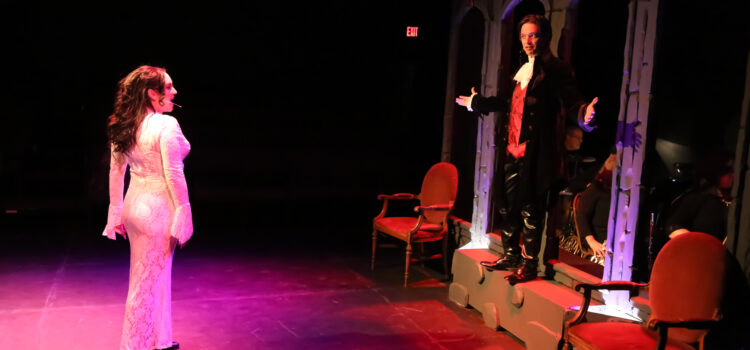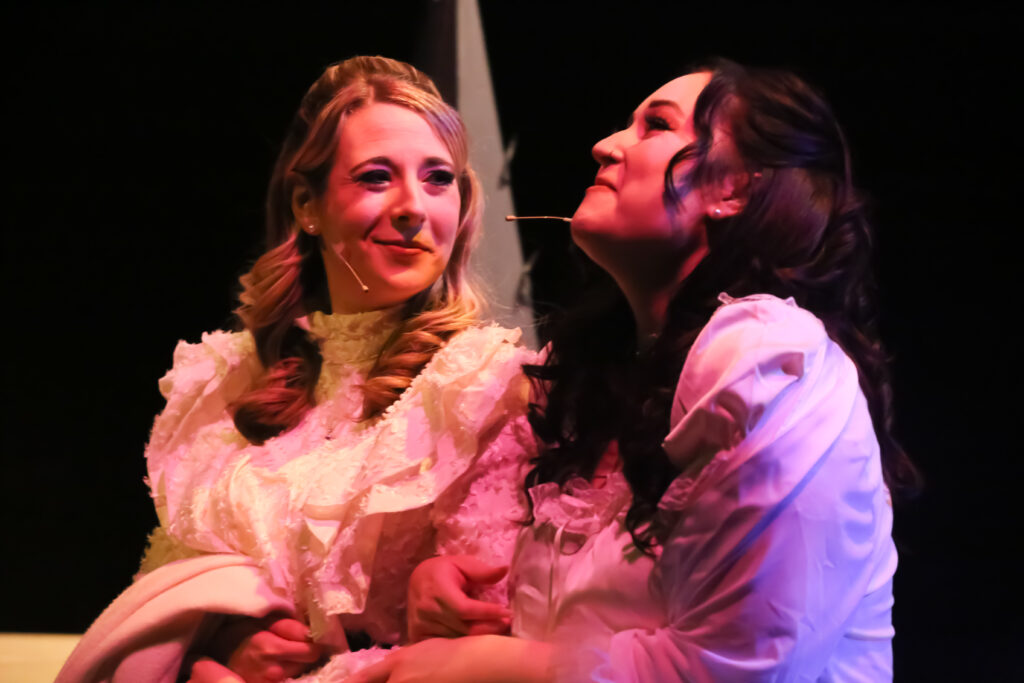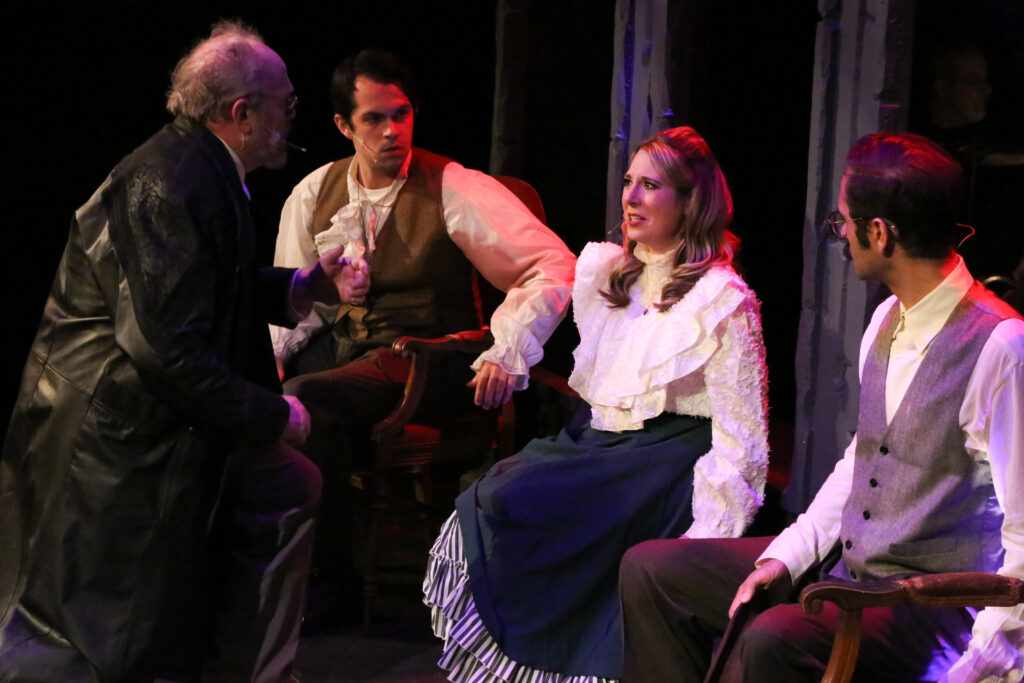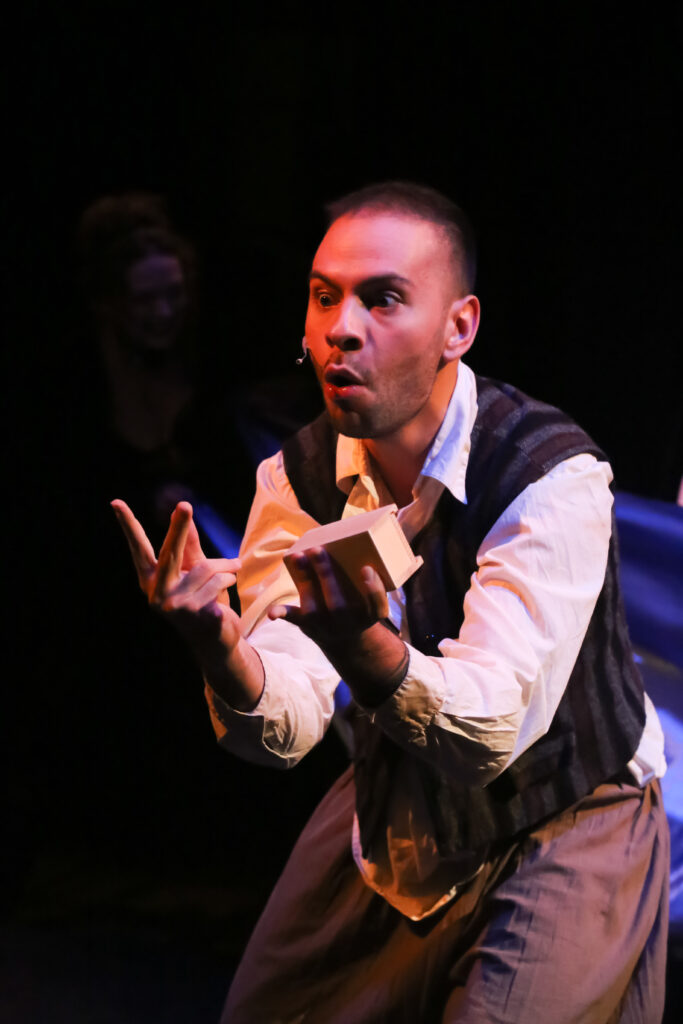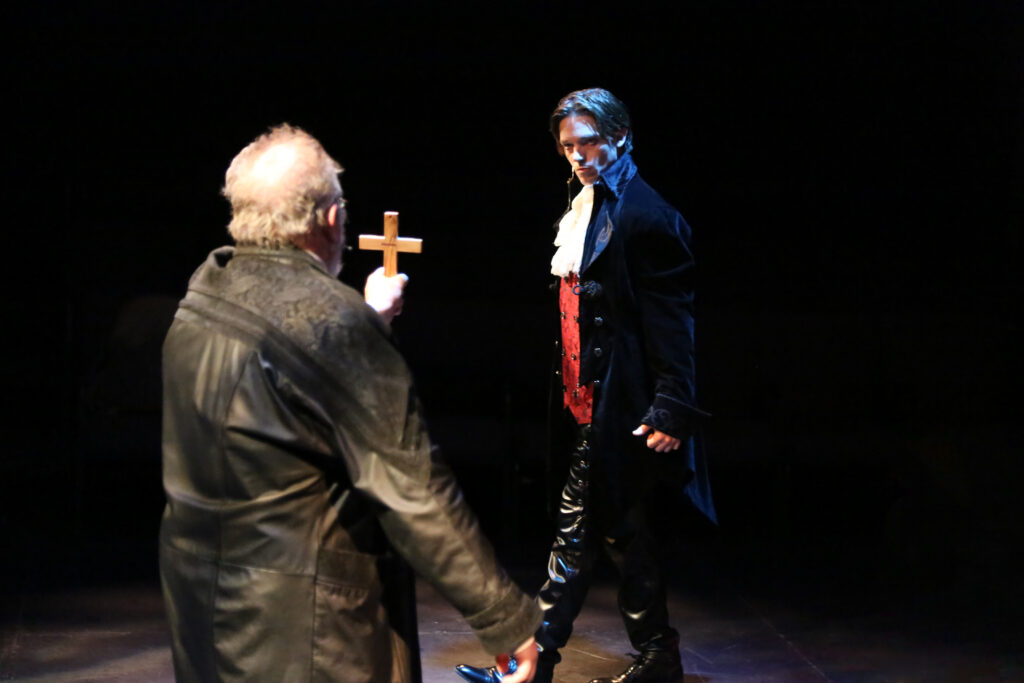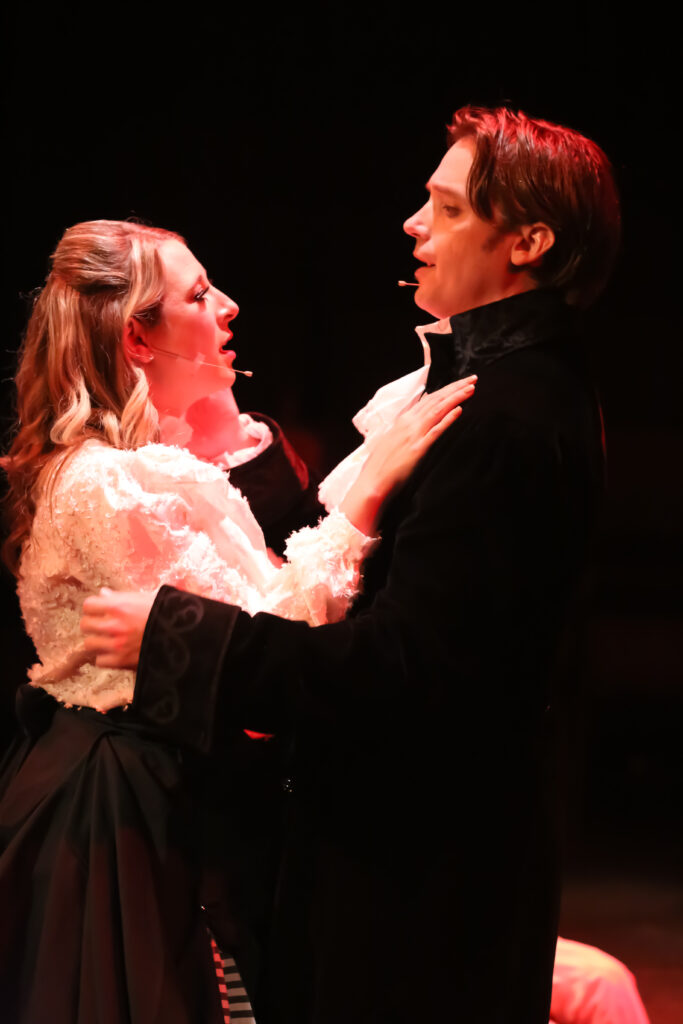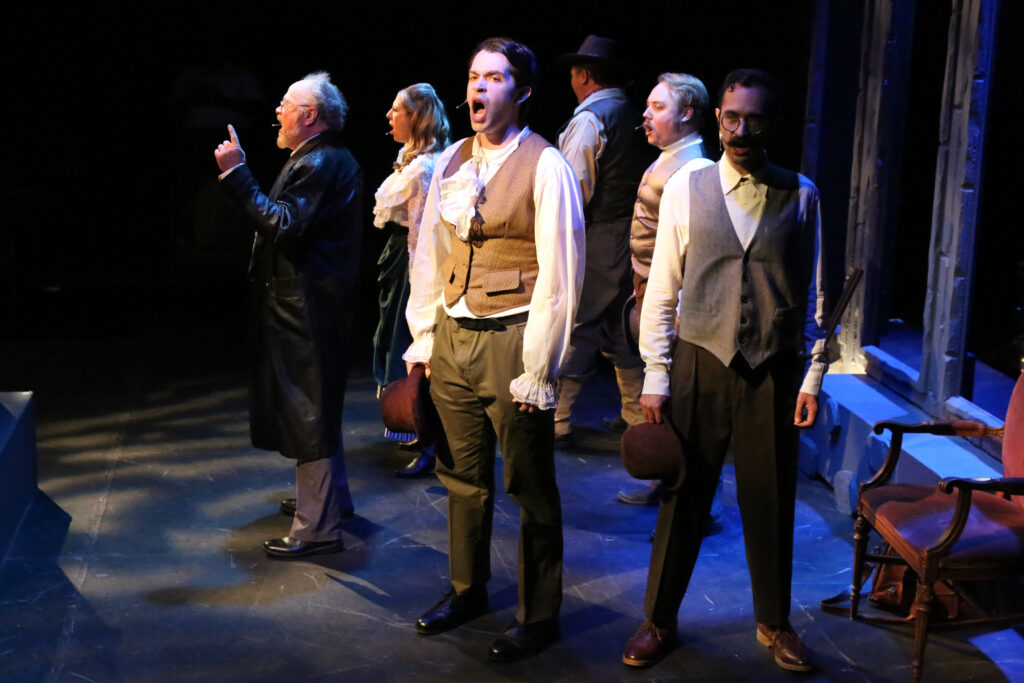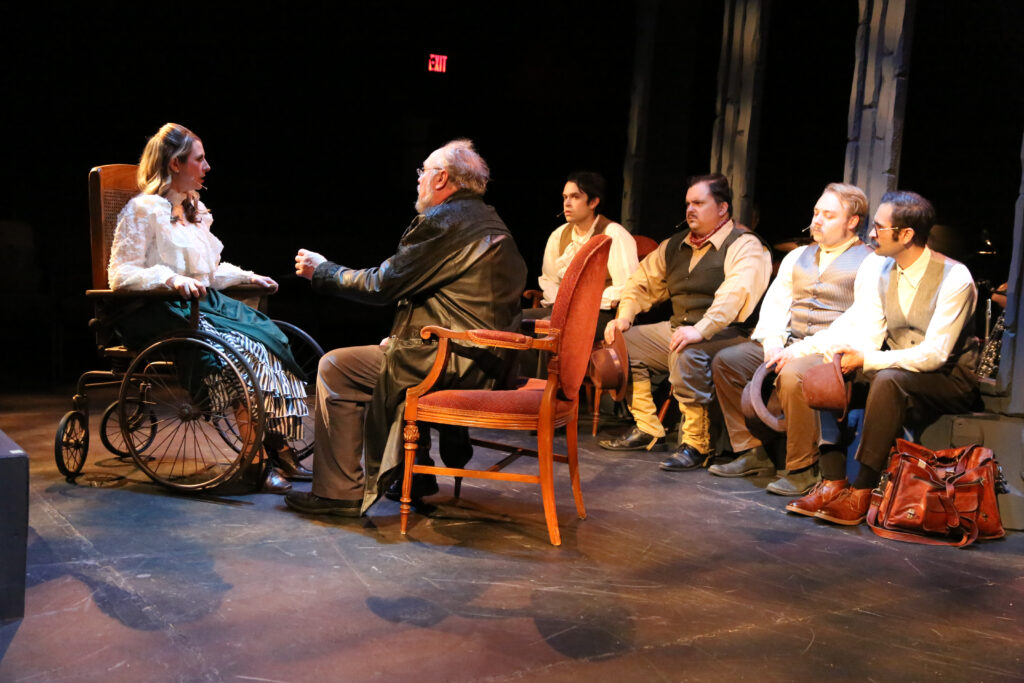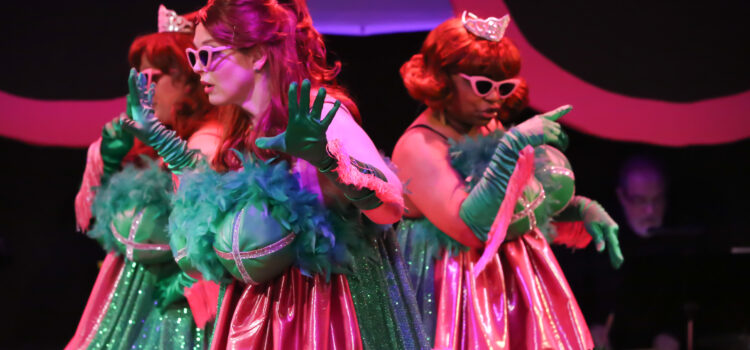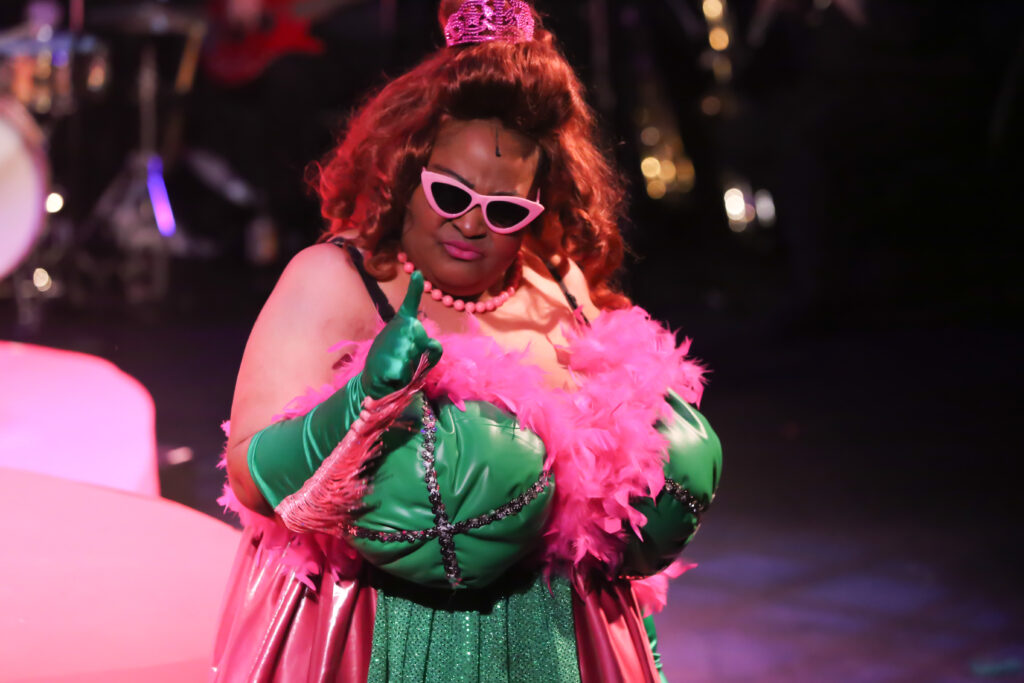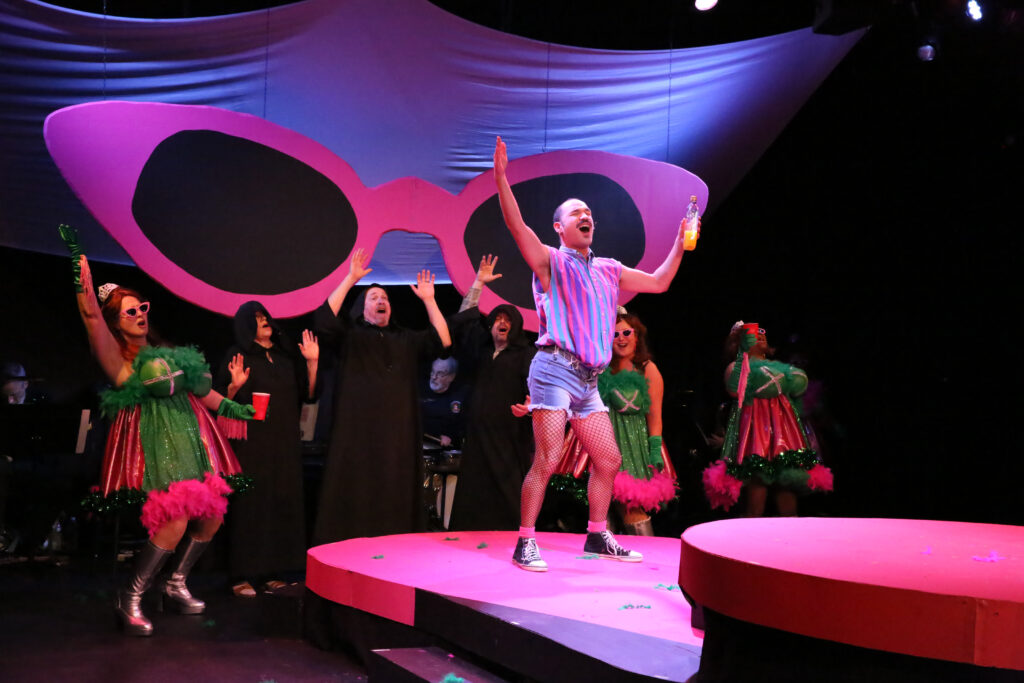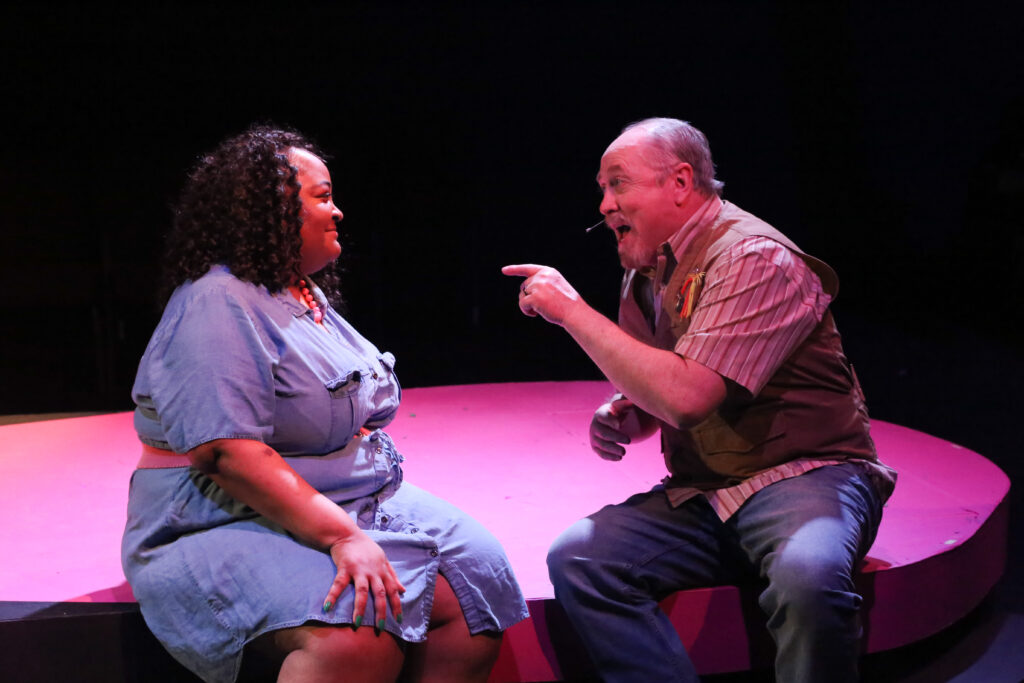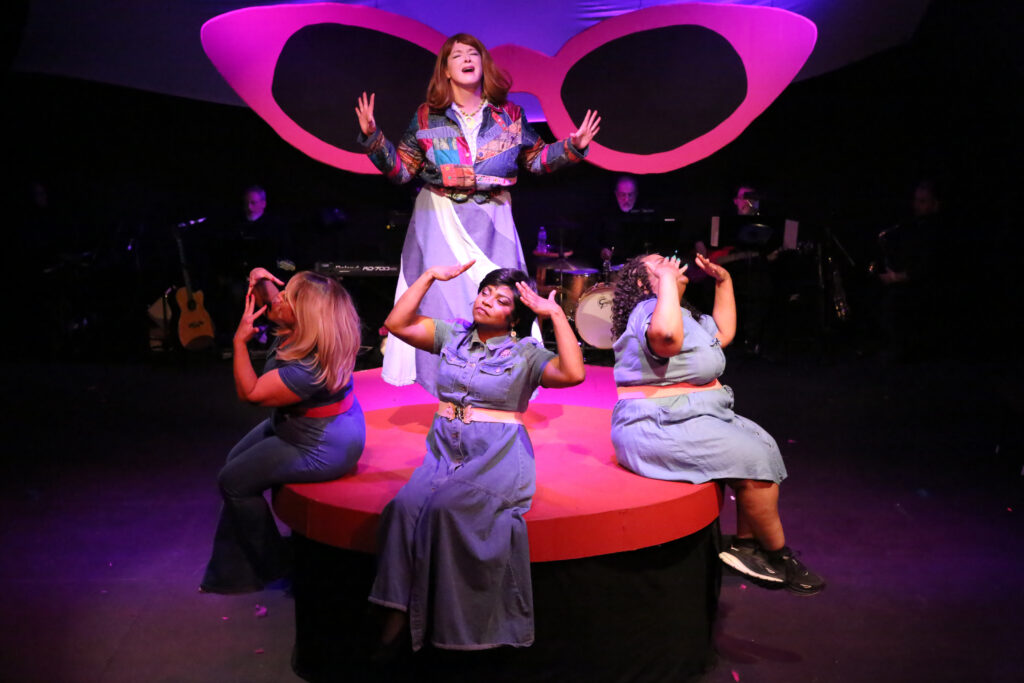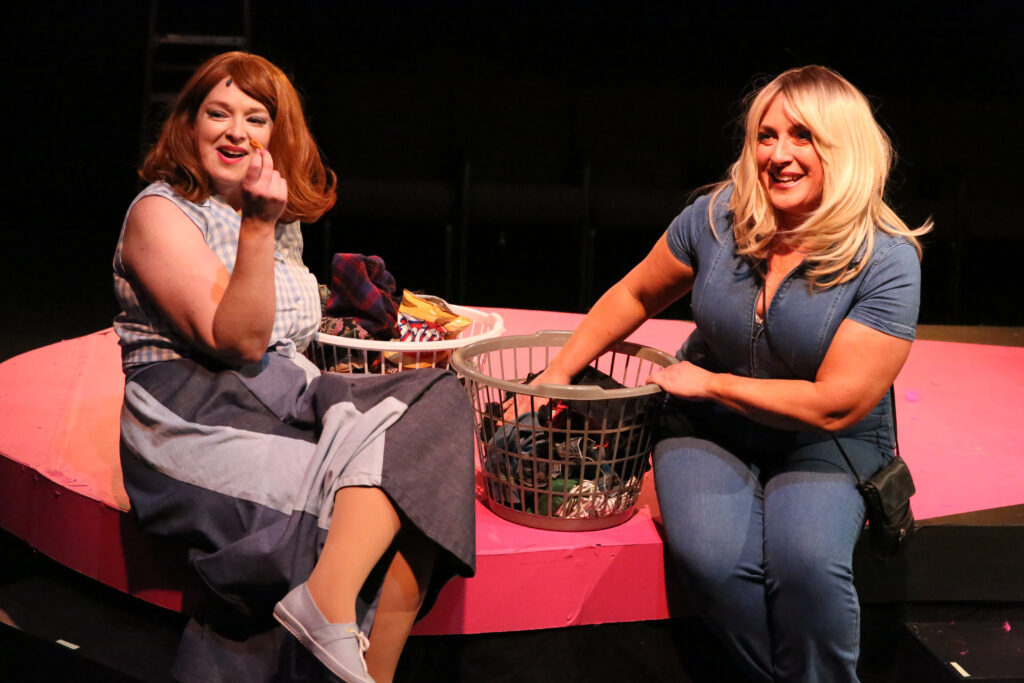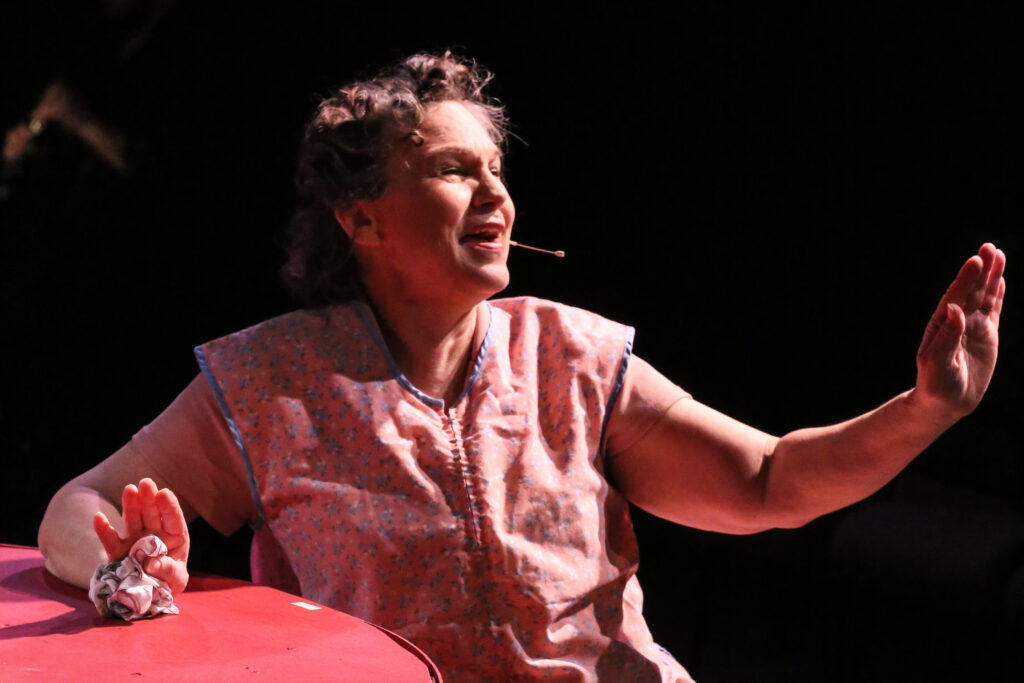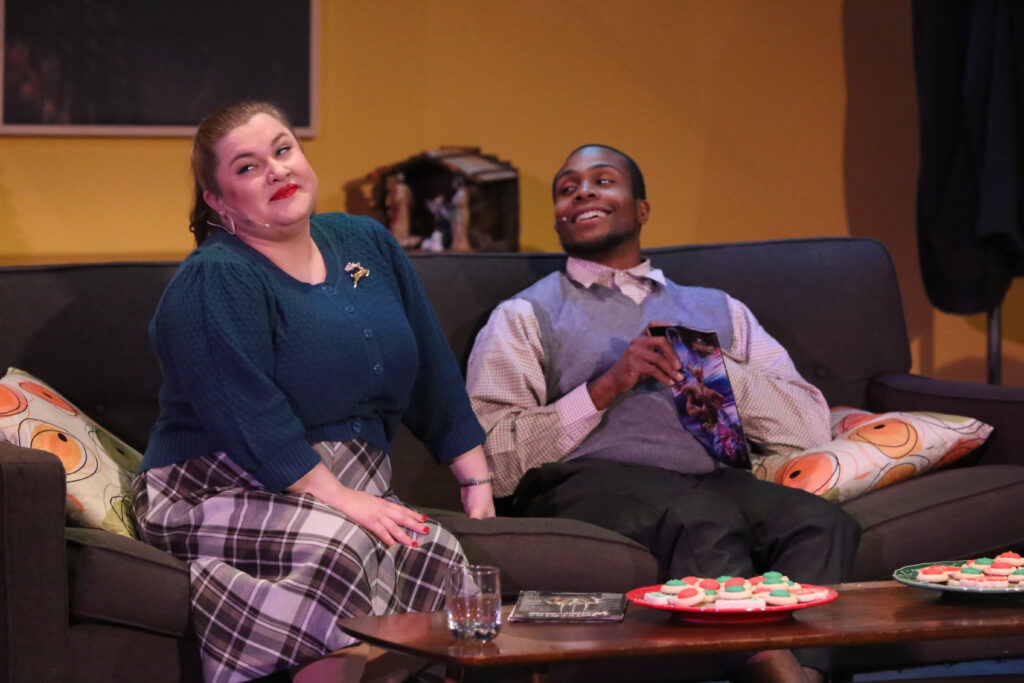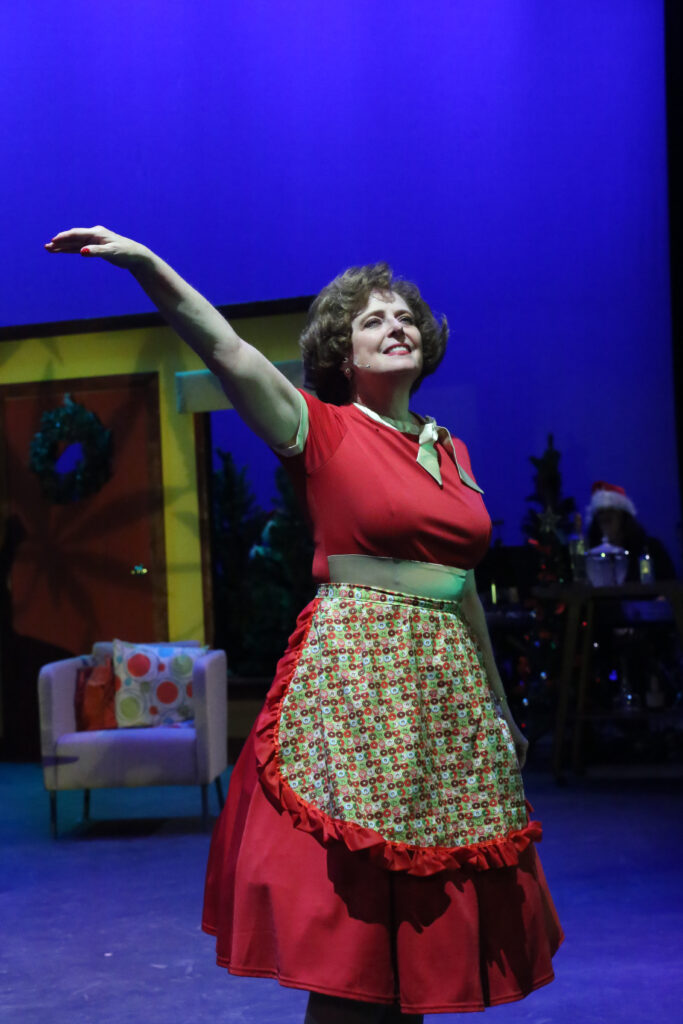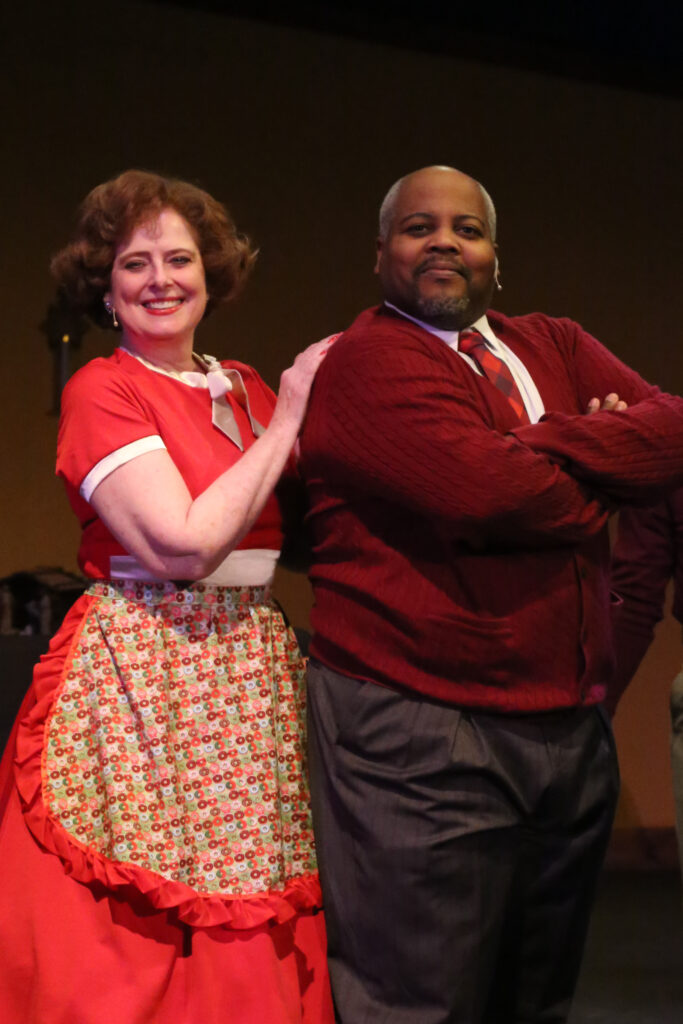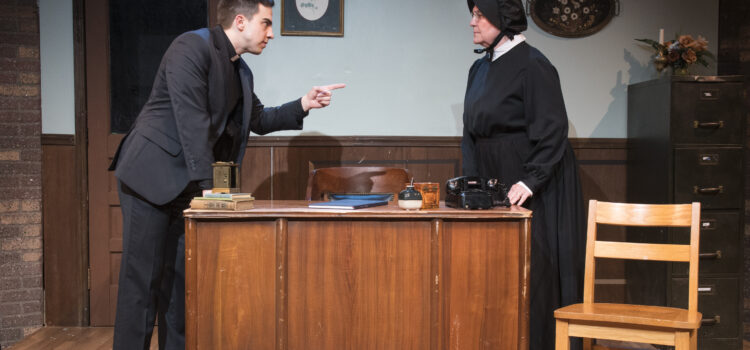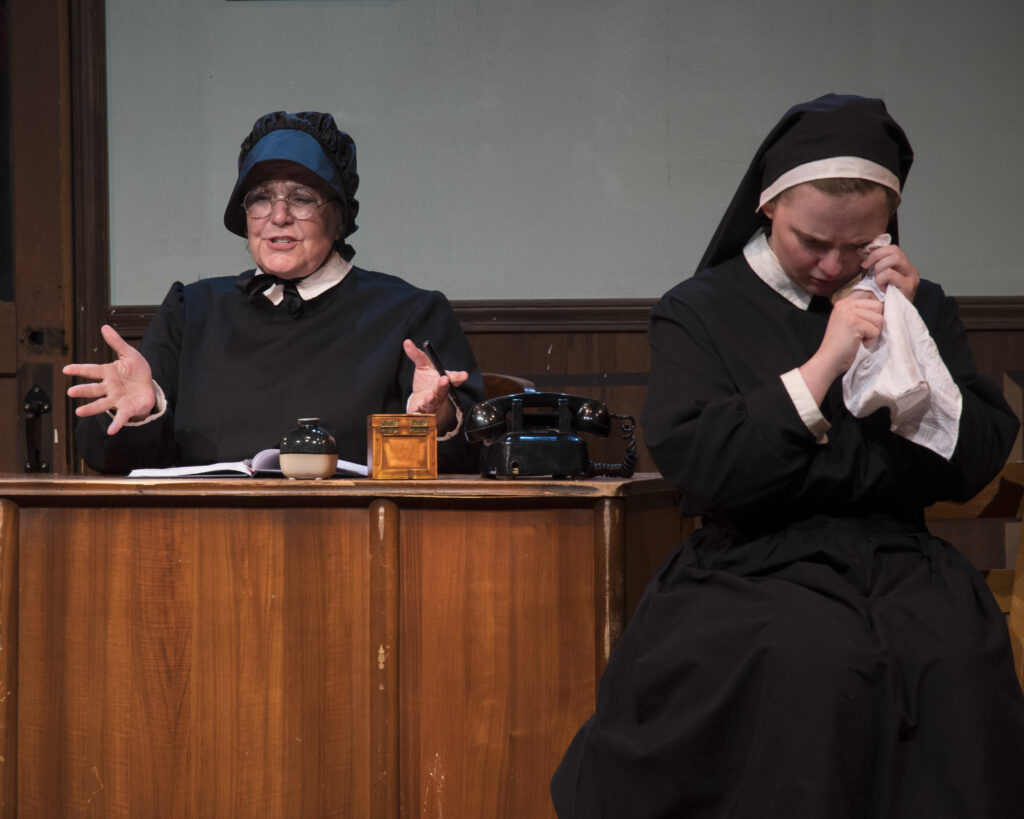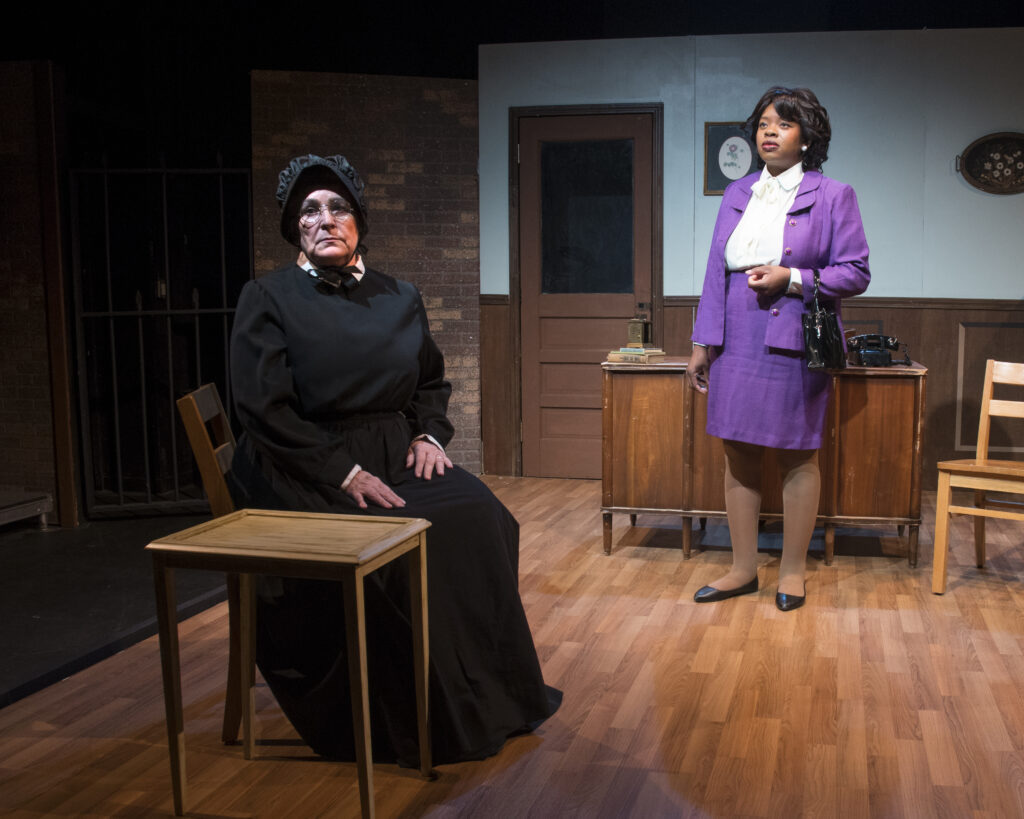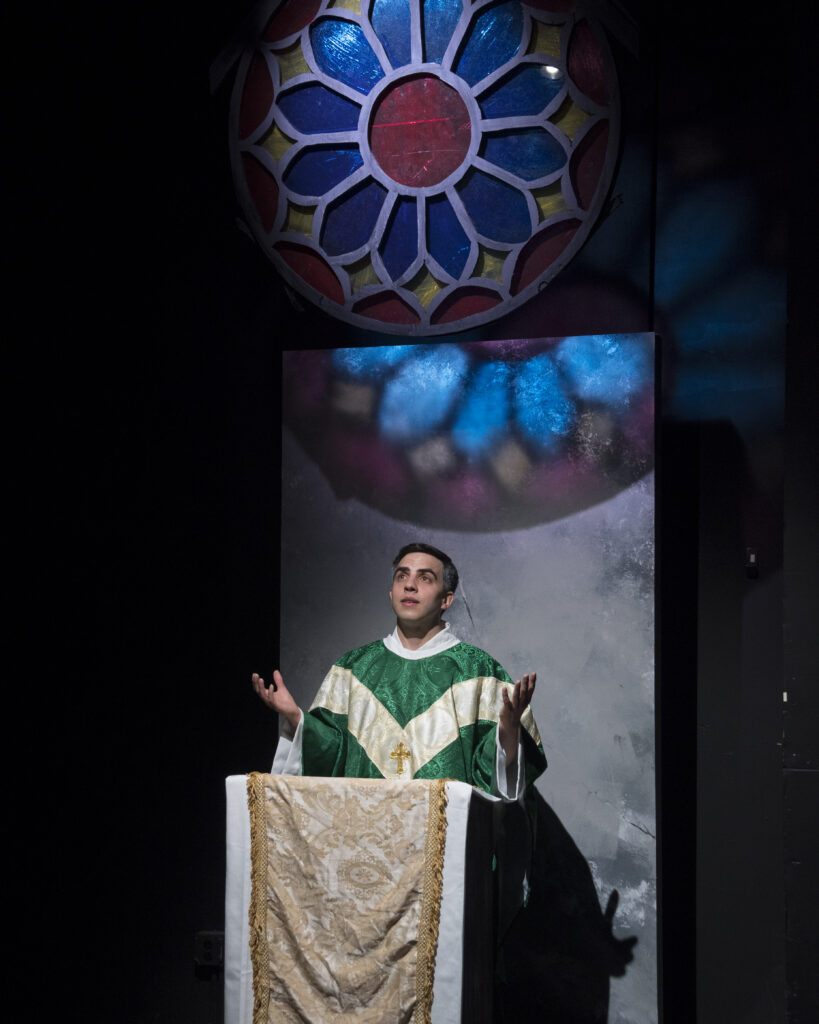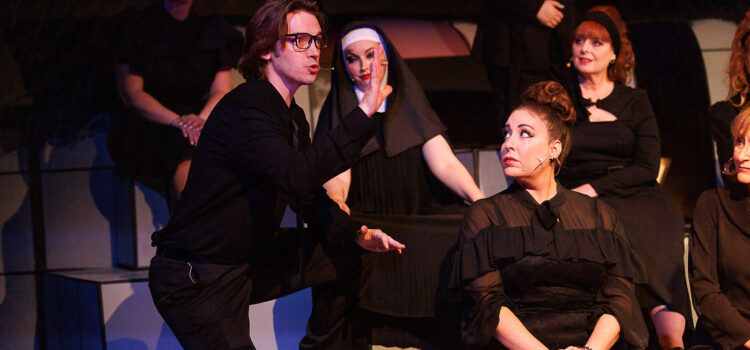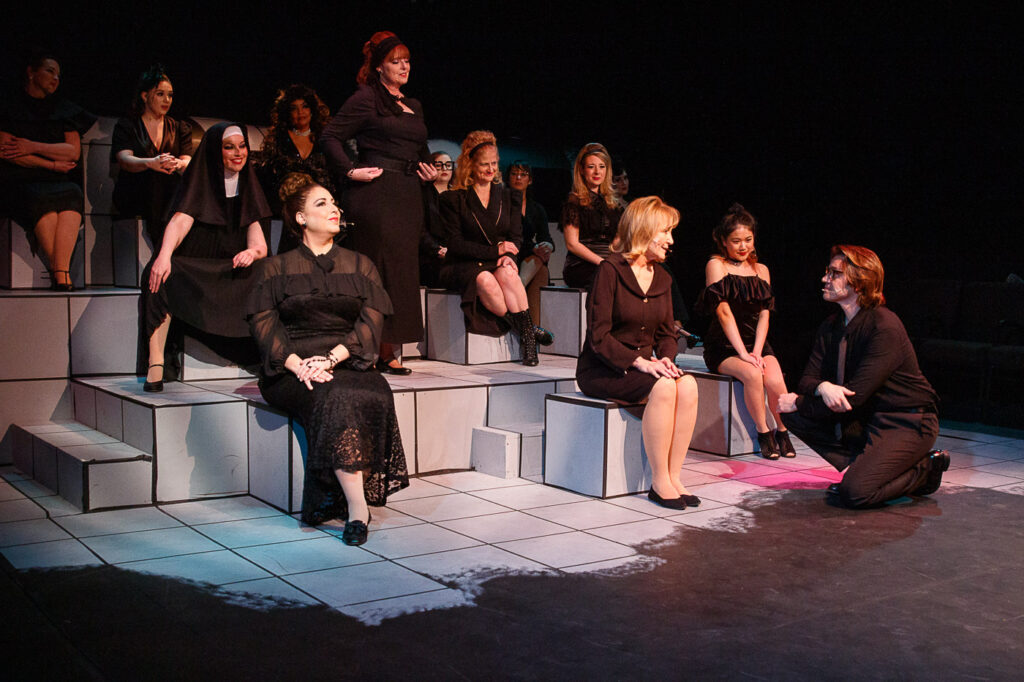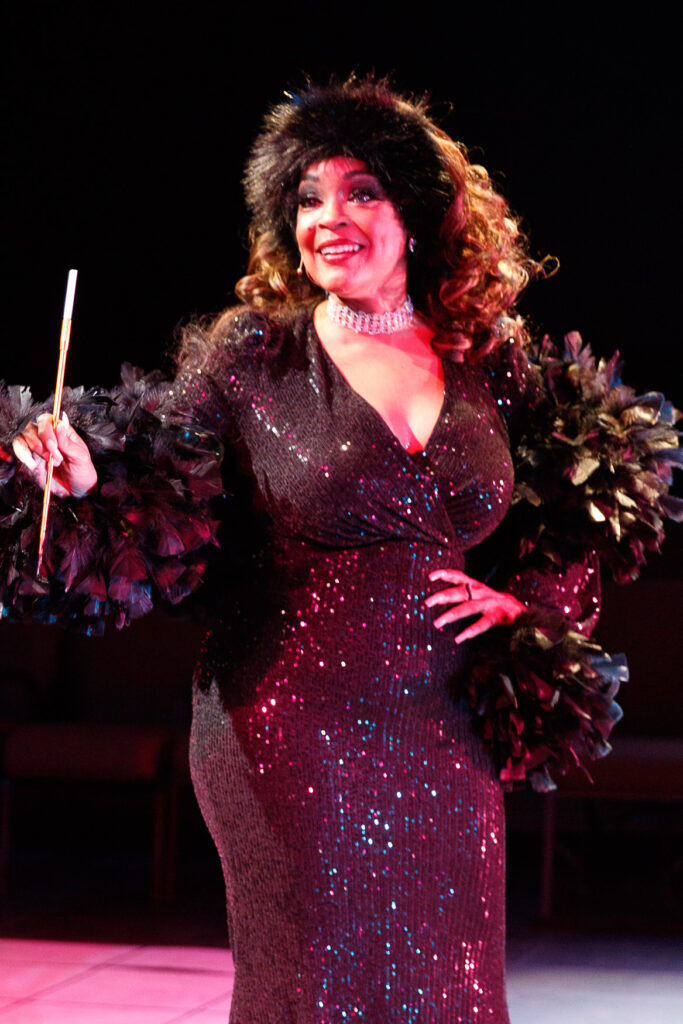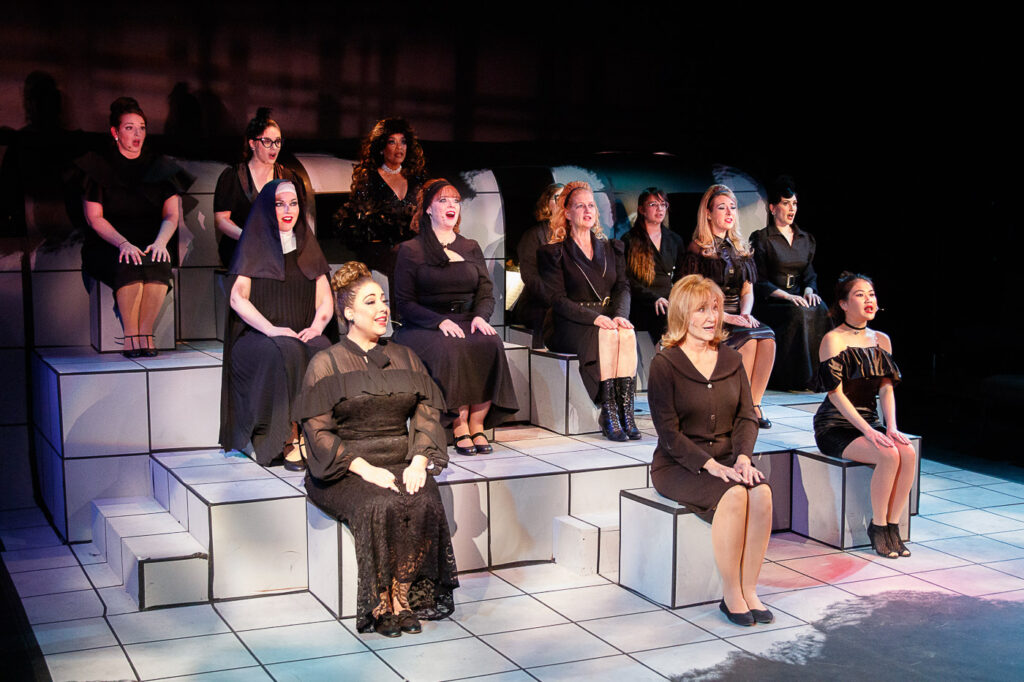By Lynn Venhaus
Supple vocal work stands out in Tesseract’s latest premiere, “My Heart Says Go,” a hip-hop-meets-pop musical well-suited for the company’s enthusiasm in mounting energetic ensembles.
But inconsistent sound quality, a louder-decibel pre-recorded music track overpowering the singers, and a cliché-riddled script hampered its impact.
Always dynamic Kevin Corpuz anchors this one-act musical as Indigo, a conflicted first-generation college student who quits to pursue his dream of making music. He is often a ball of fire on stage, i.e. “The Who’s Tommy,” “Godspell,” “Be More Chill,” “Urinetown,” “In the Heights,” and “Altar Boyz,” and this role is tailor-made to his strengths.
Indigo’s hard-working immigrant father (Kelvin Urday) thinks he’s made a grievous error. Despite that friction, Indigo moves to L.A., and meets a couple of people whom he thinks will help him reach his singer-songwriter goals.
Indigo quickly connects with Clara (Sarah Wilkinson), a struggling talented fashion designer who has a troubled relationship with her alcoholic mother (Loren Boudreau).
Sarah Wilkinson matches Corpuz in spirit and inner light. Their buoyancy, particularly in their emphatic movements, is tangible.

Bright spots are “What Does My Heart Say?” and “The Place Where Dreams Come True”; “Don’t Give Up” is a rousing finale.
Another vibrant portrayal is by Clayton Humburg as a lively rapper named Timmy, a guy brimming with positivity who assumes the role as Indigo’s biggest cheerleader.
While he doesn’t look that much older than Corpuz, Urday is touching as the concerned single father Eliseo, and the two bring out the emotions of a close dad-son bond in several heartfelt scenes and vocals (“Father vs. Son,” “Heat of the Moment” and “Foot Down”). Urday’s musical numbers are beautifully delivered, as is customary.
Victoria Pines is a soulful vocalist as a train conductor, and some sort of conduit to the characters. Her part, however, is underdeveloped and unclear how she connects to these people long after they rode the train. She shines in “Find Your Voice.”
The book is the weakest element of this show, and really drags down the overall experience. The characters are merely archetypes, and if the main characters weren’t live-wire performers, this would be painfully humdrum.
The book, written by Matthew Hawkins, overflows with triteness. How many times are aspiring artists used in hopes-and-dreams scenarios? This isn’t all that original, and nothing we haven’t seen before. Follow your passion, overcome obstacles, believe in yourself, blah blah blah. Must be compelling to sustain interest and empathy, and because of the cast’s talent, it is..
Dreams are such a theatrical staple that the brilliant satire “The Musical of Musicals” has a song called – what else? — “Follow Your Dream.”
Hey, having dreams fuels our fires, and any chance to remind people to persist following their heart is well-intentioned. But freshness is the key for endearment.

For an example, the addict mom is an unnecessary subplot, and you can predict her story arc the minute she enters. Both Pines’ conductor and Kevin Hester’s grungy recording studio engineer seem like they are characters in another show. Hester’s a fine vocalist, but he mumbled his speaking lines and barely spoke above a whisper, so his dialogue was hard to hear.
While everyone is earnest, the ensemble doesn’t seem to be well-defined either. They are a bouncy group, nevertheless – Khristian Duncan, David Gregory, Laura Schulze, and Goudreau are spry in song and dance.
Milo Garlich was out because of illness Sunday, so choreographer Maggie Nold stepped in, and didn’t miss a beat.
Grace Langford aces a brief role as a heart doctor supervising Indigo in med school.
The performers’ passion carries this show across the 90-minute finish line, as well as the music direction by Larry D. Pry and Nold’s choreography.
The sunny coupling of Wilkinson and Corpuz is natural, as they were last seen together as Rapunzel and Rapunzel’s Prince in New Jewish Theatre’s award-winning “Into the Woods” in November, and so was Pines as Jack’s Mom. Pry was the musical director of that show. Obviously, that’s a winning combination.
Other than the disappointing script, a major problem stemmed from the technical elements. The garbled sound was challenging, with echoes and reverbs marring vocals, and most of the time the recorded music overpowered the vocalists. Sound designer Ryan Day is familiar with The Marcelle, so I am not sure why there were so many issues.
The blocking where characters had scenes far back made it even harder to engage, because the sound was such a mixed bag. The lighting overall was inconsistent and shadowy, and again, another experienced Marcelle technician, Matt Stuckel, oversaw the design. The neon lights on the back wall, however, were a nifty touch.
Director Brittanie Gunn relied on simple staging to focus on the characters’ journeys. By using the entirety of The Marcelle stage, it seemed at times too cavernous for such a small musical. Nevertheless, she maintained a zippy pace, with smooth entrances and snappy group placings.
The score of this show is based on the personal experience of Jorge “Jay” Rivera-Herrans, who switched from pre-med to the film, television and theater department as a student at University of Notre Dame. After graduation, he received a fellowship, continued pursuing his ideas, and the school served as his incubator.
No one doubts his ardor or sincerity. The musical premiered in 2023 and has become a viral sensation. I imagine that’s largely on the strength of the musical being a celebratory anthem because the story should be further workshopped, and characters more fleshed out.

One of the show’s highlights is the costume design by Abby Pastorello, who either found or made embroidered denim jackets and shirts to give a unique flair to Clara’s original designs. Those outfits were a bright addition to an otherwise scruffy group wearing band T-shirts and casual attire. In contrast were fashionista Clara’s well-put together looks, especially a bedazzled black leather ensemble that Wilkinson rocked.
This show has a shaggy charm, not unlike Lin-Manuel Miranda’s early one-act endeavor “21 Chump Street,” but on the off-the-charts inspiring meter, it lags behind “tick, tick…Boom!” “Dreamgirls,” “Beautiful: the Carole King Musical,” and many others as a whole package.
Of course, this is on a much smaller scale, and targeted to tug at your heart strings. It is a labor of love for all involved.
In recent years, Tesseract has taken more risks with musical premieres, such as “The Mad Ones,” “Ordinary Days,” and the upcoming original “Cascade’s Fire,” and tackled big shoes with “Kinky Boots” and “The Last Five Years.” Their ambitious drive is refreshing.
Hopefully, the technical director Kevin Sallwasser can get the glitches worked out this week before the show returns. The production already has a first-rate cast that it showcases fervently.
(As an aside, many a show presented in the smaller Grand Center venues has been known to have sound issues, aka at The .Zack and The Grandel. If these venues encourage stage productions, doesn’t it behoove the facilities’ powers-at-be to upgrade sound technology? We critics are beginning to sound like broken records.)
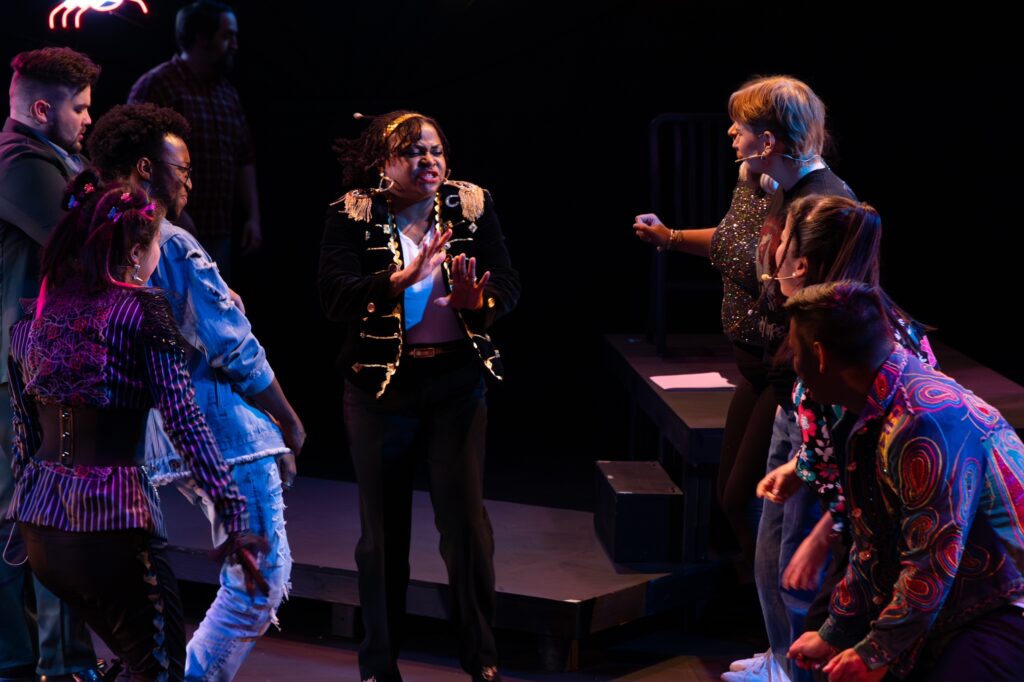
Tesseract Theatre Company presents “My Heart Says Go” July 11 – July 21, as part of its Summer Festival of New Musicals at the Marcelle Theatre in Grand Center. Performances are July 11-13 and July 20 at 8 p.m., and July 14-21 at 4 p.m. For more information, visit www.tesseracttheatre.com

Lynn (Zipfel) Venhaus has had a continuous byline in St. Louis metro region publications since 1978. She writes features and news for Belleville News-Democrat and contributes to St. Louis magazine and other publications.
She is a Rotten Tomatoes-approved film critic, currently reviews films for Webster-Kirkwood Times and KTRS Radio, covers entertainment for PopLifeSTL.com and co-hosts podcast PopLifeSTL.com…Presents.
She is a member of Critics Choice Association, where she serves on the women’s and marketing committees; Alliance of Women Film Journalists; and on the board of the St. Louis Film Critics Association. She is a founding and board member of the St. Louis Theater Circle.
She is retired from teaching journalism/media as an adjunct college instructor.


